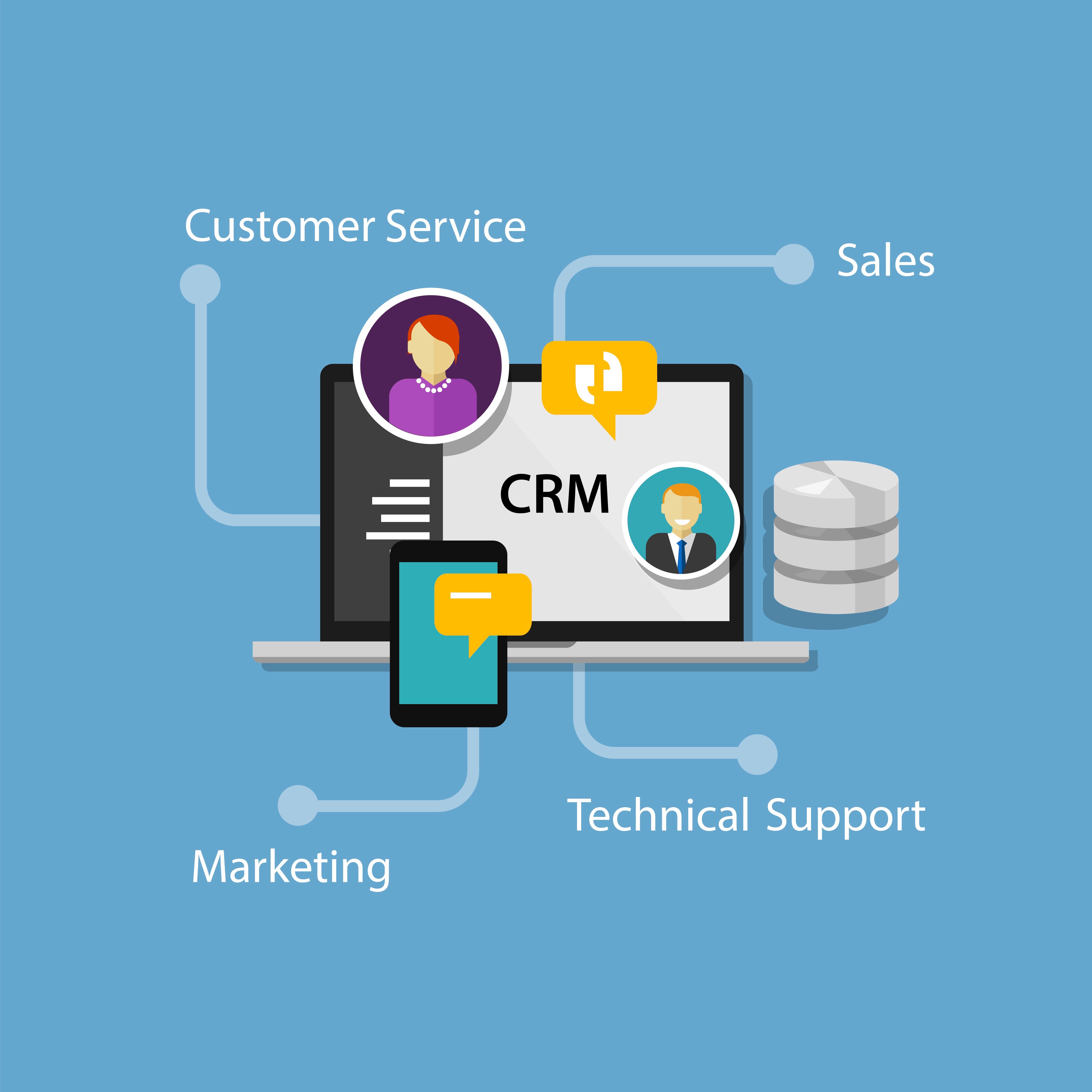Being a successful real estate agent requires you to be at the top of your game when it comes to working with customers and matching them with the perfect property. Along with having a knack for knowing what people want comes the need to be a proficient multi-tasker. Locating properties, marketing them, and cultivating a strong customer base are all parts of your everyday responsibilities. Fortunately, there are tools that can help you to more easily manage these tasks. CRM, or customer relationship management, the software helps professionals to maintain better client relationships.
This type of resource offers a great deal of control and customization when it comes to handling customer needs. From securing potential client contact information to tracking interactions, a CRM can help make the essential task of building relationships a breeze. The key is to find a system that works for you. Here’s what you need to know about customer relationship management tools and how to decide what CRM is best for your real estate business.
CRMs Keep Things Running Smoothly
The best CRMs for real estate will provide you with the tools you need to keep your business running smoothly. As a real estate pro, you know that a dropped ball can cost you a sale. This can be especially true when there are multiple people on your team. You don’t want to lose business due to an oversight or missed communication.
The purpose of a CRM, as its name implies, is to manage customer relationships. It allows you to store data in a database that can be accessed by multiple stakeholders within your organization. By adding notes about each communication your team has with a client, you can make sure to stay on top of such pertinent details as contact information, preferences, and needs. The data you collect can also make it more likely that you provide timely follow-up, ensuring you don’t lose sales or harm your reputation.
Choose the Right CRM for Your Business
There are lots of CRMs that can streamline client management for real estate professionals. Each offers its own unique features and capabilities. Some research will likely be needed to find one that best suits your purposes and priorities. Therefore, it will be important for you to determine what your main purposes for using a CRM tool may be.
The size, structure, and needs of your business can guide your search. Some CRM systems focus on capturing and managing leads, while others may have robust features for in-depth marketing and outreach automation. There are even CRMs that are able to import data from other systems such as your newest leads. Some provide a structure that is tailored to large firms with multiple teams. Others will be better suited to solo agents and smaller operations.
The Difference a CRM Can Make
Building relationships is essential for success in real estate. It’s imperative that you demonstrate strong interpersonal skills when working with clients. Not only will you need to be friendly and authentic, but effective communication is also crucial. Timely follow-up and keeping your word demonstrates integrity, and a CRM can help you with that.
Nurturing your leads and circling back with them can be made much easier and more efficient with a CRM system. You and your team members are able to keep track of contact notes with one accessible and easy-to-navigate tool. Storing this information in one place keeps everyone on the same page, allowing you to provide your client base with superior service. CRM tools make it easy to stay organized as long as you’re sure to input and update information promptly.
Improving Communication for Relationship Building
In a business like real estate, thorough communication can make or break you. Strong interpersonal communication is appreciated by customers, as is proper follow-through. Building relationships and customer retention depend on your ability to demonstrate genuine care, honesty, and sincerity. A good CRM system can help you do just that by managing your client interactions. This type of tool lets you use the information you’ve captured to send targeted marketing communications, keeping your business top-of-mind for their future real estate needs.
Best Ways to Use Your CRM
As you can see, CRM tools make managing leads and tracking client interactions a seamless process. You may still wonder about the practical ways you can use such a system in your real estate business.
Customer relationship management software can:
- Keep track of leads
- Improve follow-up
- Increase lead conversion
- Prioritize leads
- Focus sales efforts
- Organize client data
- Automate marketing.
These capabilities are interconnected. They rely on each other to provide the best possible experience for your customers. Keeping track of your leads in one easy-to-access system ensures no customer falls through the cracks. When you’re able to follow up in a timely and professional manner, your clients are more likely to trust you and want to do business with you. You’re likely to see more leads convert to sales.
Some CRMs give you the ability to utilize what’s known as “lead scoring.” This concept assigns a number to such factors as budget, location, and the likelihood of a sale so that you can prioritize your sales efforts. The sheer organizational structure offered by CRM tools is invaluable. With all of this data so easily accessible, you can maximize the time you spend on other important facets of your business. Marketing automation through targeted email campaigns is one such task a CRM can make easier to accomplish.
Pulling It All Together
You know how important it is to stay organized in your real estate business. It is the foundation for prompt follow-up and trust-building. A CRM, or customer relationship manager, tool puts data organization at the forefront, so you and your team can focus on creating relationships and matching buyers with properties. The right CRM can make your business thrive.

